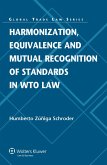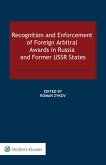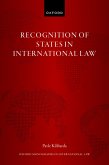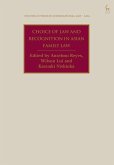Standards are a feature of virtually all areas of trade in products and services. Yet, although standards may achieve an efficient economic exchange, they have discriminatory consequences for trading partners when governments formulate or apply them in such a way as to cause obstacles to trade, thus enrolling standards among the increasingly significant 'non-tariff barriers' regulated by the WTO. This unique and original study analyses the functions that standards fulfil in the market, their effect on trade, and the legal regime based on harmonization, equivalence and mutual recognition developed by the WTO to deal with standards. The author investigates the way in which both the WTO Technical Barriers to Trade (TBT) and the Sanitary and Phytosanitary (SPS) Measures Agreements regulate these three tools, and discusses key topics including: The definition of the concept 'International Standard' in the TBT Agreement. Guidelines on equivalence issued by organizations such as the Codex Alimentarius Commission, the World Organization for Animal Health and the International Plant Protection Convention. Parallels between the EC mutual recognition regime and the WTO system. This is the first work on its subject. With its detailed and practical analysis of WTO law on standards, the book is a fundamental reference for practitioners, academics and policy makers in international trade law.
Dieser Download kann aus rechtlichen Gründen nur mit Rechnungsadresse in A, B, BG, CY, CZ, D, DK, EW, E, FIN, F, GR, HR, H, IRL, I, LT, L, LR, M, NL, PL, P, R, S, SLO, SK ausgeliefert werden.









